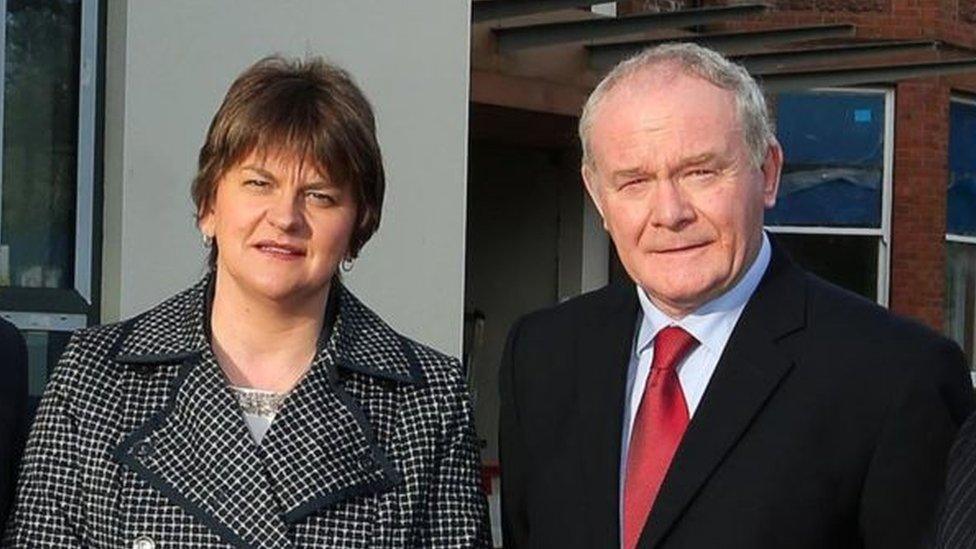Varadkar faces heat over constitution comments
- Published
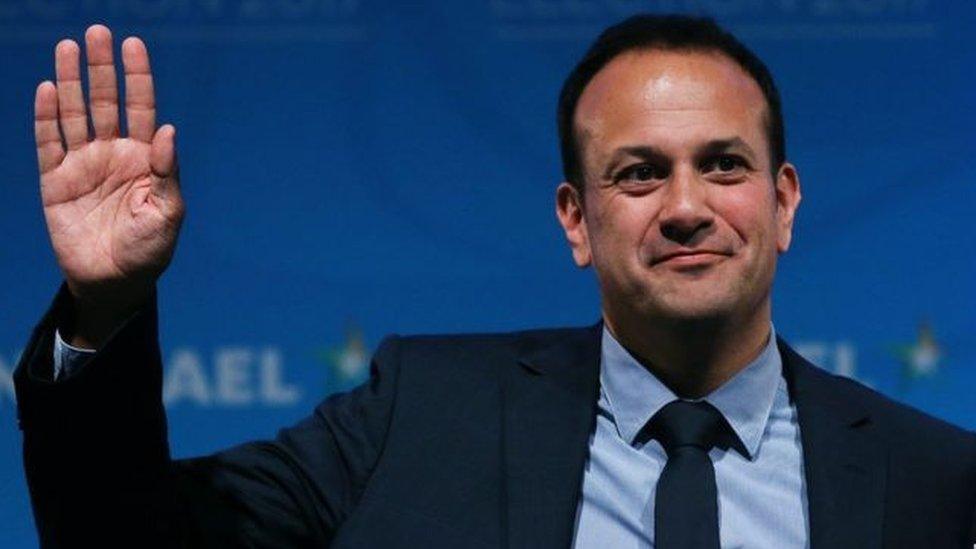
Leo Varadkar said the Good Friday Agreement got "very strong cross border support"
Taoiseach Leo Varadkar's view, expressed to the BBC Spotlight programme, that he "wouldn't like us to get to the point whereby we are changing the constitutional position here in Northern Ireland on a 50% plus one basis" has caused a backlash from northern nationalists.
Sinn Fein's senior negotiator Conor Murphy has insisted that the 1998 Good Friday Agreement is "absolutely clear" that "if a simple majority vote in favour of reunification, both governments are then obliged to legislate for it".
Mr Murphy has argued that there's "an onus on the Irish government to plan for unity, to become a persuader for unity, to build the maximum agreement and to secure and win a referendum on unity.
"As a co-guarantor of the Good Friday Agreement", the Sinn Fein politician continued, "the taoiseach should be seeking to defend the agreement in all its parts, not seeking to undermine it."
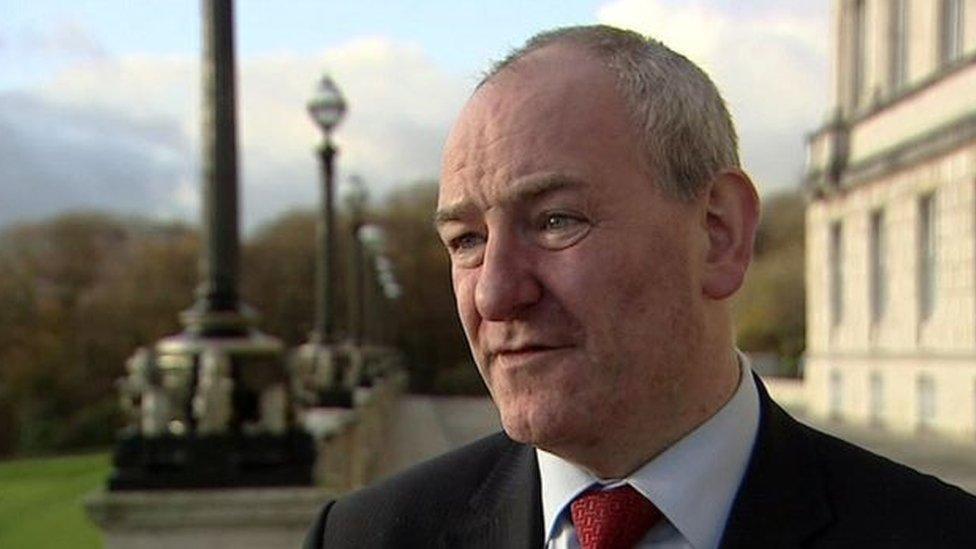
Mark Durkan tweeted his response to the Taoiseach's comments
The former SDLP leader and deputy first minister Mark Durkan, who was a key negotiator on the agreement nearly two decades ago, has been equally exercised.
In a series of tweets, external, Mr Durkan said Mr Varadkar needs to know that when the SDLP and the other parties negotiated the 1998 deal the "principle of consent was to apply equally" to two legitimate aspirations, namely support for remaining in the UK or moving to a united Ireland.
Mr Durkan made it clear that - in his view - "any other understanding would not have been agreed then. Nor should one be dubiously or dangerously inferred now".
His tweets pointed out that any future border poll would also be a choice between being in or out of the European Union and that there shouldn't be one rule for the Brexit referendum and another for a border poll.
By contrast former DUP MLA Nelson McCausland told BBC Radio Ulster's Talk Back that he sees the taoiseach's comments as "a recognition that the main political parties in the Irish Republic have no real interest in Irish unity".
Mr McCausland said a future border poll would be not just a divorce from the UK but also a re-marriage with the Republic of Ireland, so argued the exercise would not exactly be the same as the simple majorities required in the Brexit referendum or a future Scottish independence vote
The taoiseach may counter that he was simply trying to focus the Stormont politicians' minds on making the deal they now have work.
He told Spotlight: "One of the the best things about the Good Friday Agreement is that it did get very strong cross border support - that's why there was a 70% vote for it."
He added: "I don't think that there would be a 70% vote for a united Ireland in the morning, for example, or anything remotely to that. And I really think we should focus on making the agreement that we have work."
The debate about a threshold for a border poll may appear rather academic right now, but it's clear northern nationalists won't buy the notion that such a border poll should be subjected to any kind of weighted majority.
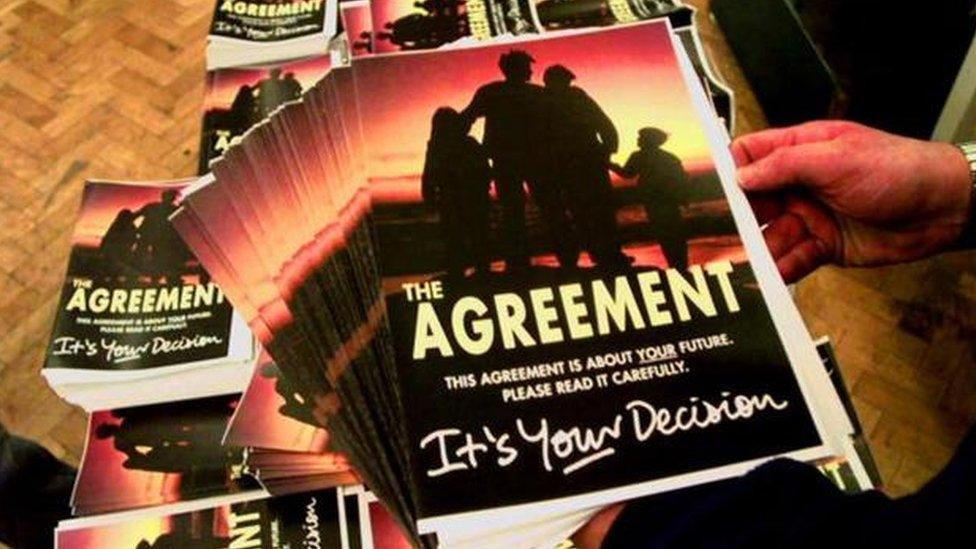
The Good Friday Agreement was signed in April 1998
However there is also another stipulation of the Good Friday Agreement to bear in mind - it recognises that it is for the people of the island of Ireland alone "to exercise their right of self-determination on the basis of consent, freely and concurrently given, north and south, to bring about a united Ireland".
The deal amended Article 3 of the Irish constitution to read that "it is the firm will of the Irish nation, in harmony and friendship, to unite all the people who share the territory of the island of Ireland, in all the diversity of their identities and traditions".
But Article 3, external acknowledges "that a united Ireland shall be brought about only by peaceful means with the consent of a majority of the people, democratically expressed, in both jurisdictions in the island."
This means any future 51% knife edge vote for a united Ireland by people north of the border would also require the consent of a majority of people in the south.
Can that be taken for granted?
It would certainly be easier to guarantee if any border poll takes place in an atmosphere in which Northern Ireland appears stable and prosperous - in short a "good prospect" for a future marriage.
- Published17 October 2017
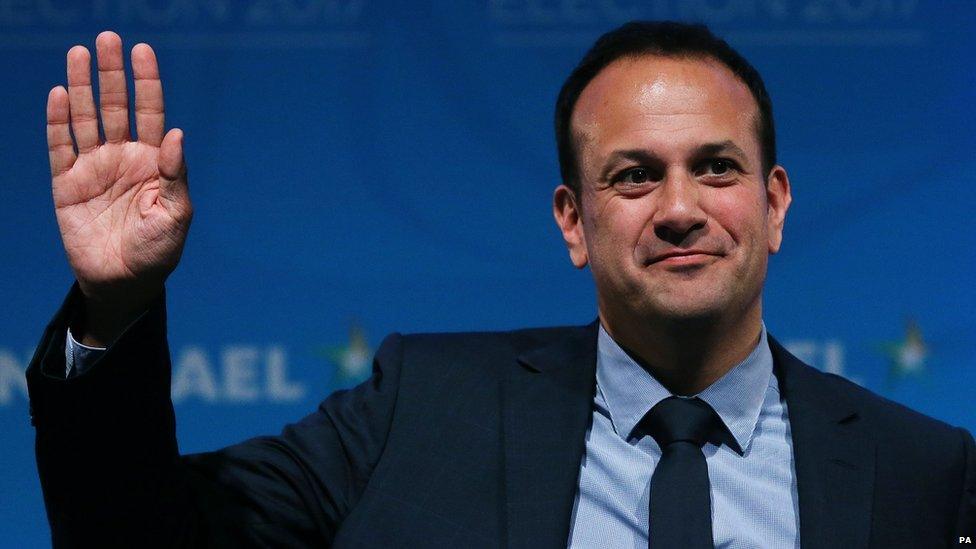
- Published20 March 2024
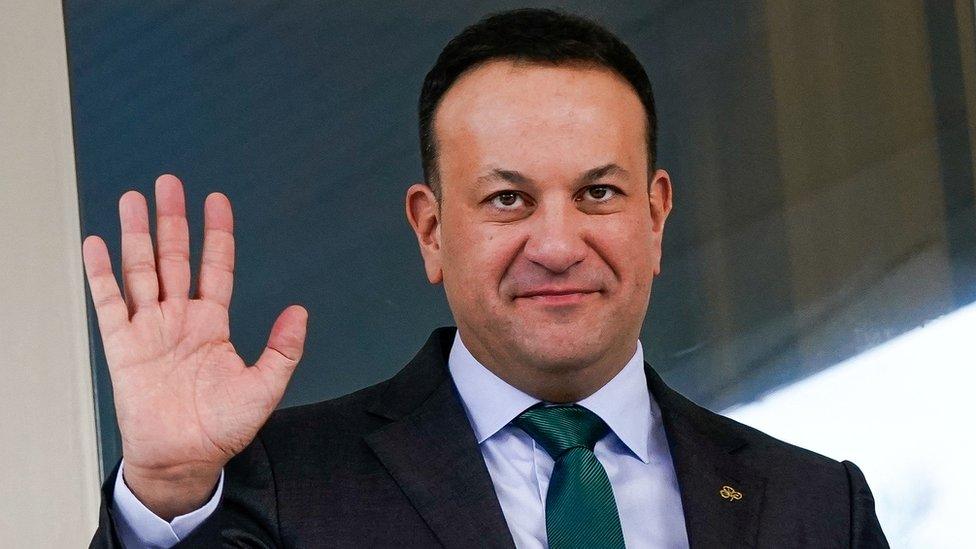
- Published16 January 2017
